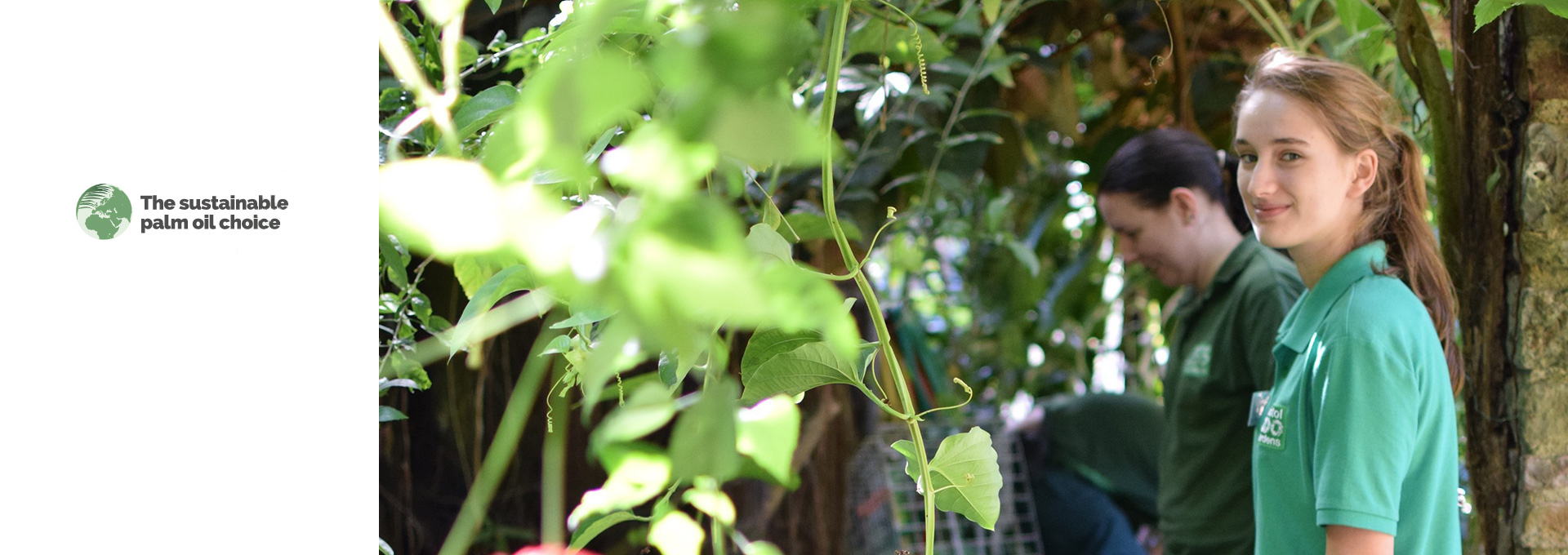‘We are dedicated to promoting a world where all palm oil is 100% sustainably produced’
by: Emma Payne – Bristol Zoological Society
Palm oil has become highly controversial in recent years. While many advocate a total ban on this crop, an increasing number of conservation organisations are committed to support the move to 100% sustainable palm oil. Why do they choose for sustainable palm oil? Emma Payne from Bristol Zoological Society explains to us why this is key to the conservation of wildlife and natural habitats:
As part of our commitment to ‘saving wildlife together’ at Bristol Zoological Society, we are dedicated to promoting a world where all palm oil is 100% sustainably produced.
Bristol Zoological Society is a registered education and environmental charity, which runs and manages Bristol Zoo Gardens and Wild Place Project, as well as conservation projects in 10 countries around the world.
Palm oil is the most widely used vegetable oil in the world with approximately 60 million tonnes produced each year, but when produced unsustainably it has negative consequences on the environment and biodiversity.
Over the past few years, we have been spearheading a campaign to encourage people to choose products containing sustainable palm oil, and to encourage organisations to take responsibility for sustainable sourcing and correct labelling of palm oil products.
Why stick with palm oil?
There is large controversy surrounding palm oil production, led by high-profile organisations and hard-hitting advertising campaigns. These promote a total ban on palm oil, but this is not the best solution.
Replacement vegetable oil crops have a far lower yield, so more land would be needed to produce the same amount of vegetable oil. Palm produces up to ten times more oil per hectare than any other crop in the world, so it can be produced using far fewer plants, and therefore less land.
We believe something can be done about the use of palm oil without destroying livelihoods or using even more land for crops – by supporting sustainable production.
Find it real interesting? Read the full blog here.




